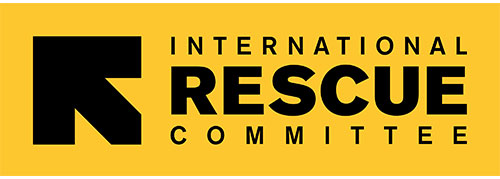World Refugee Day: How our programmes enable refugees and host communities to thrive together
June 18, 2020

This World Refugee Day, we are looking at a different world, one that is grappling with the COVID-19 crisis. Life as many of us knew it seemed to change overnight.
For a refugee who has been forced to flee home because of conflict or violence, living with fear and uncertainty is nothing new. Many have had to leave loved ones behind to start a new life in an unfamiliar place.
“I only took my wife and two children with me when I fled my home country. I left everything behind. I had to start from scratch to improve my family’s living conditions, but it was not easy,” says Muhizi Kayonde Pierre. The Congolese father of four is now living in Rwanda, growing and selling corn to support his family.
Muhizi is part of an agricultural project promoting inclusion in the Misizi marshland of Rwanda, set up by the IKEA Foundation, UNHCR, the UN Refugee Agency and partners. The project gives over 1,400 Rwandan and Congolese farmers the ability to work and improve their family’s incomes.
The ties between local people and those who have arrived more recently are clear–across fields full of ripened corn, they are working together, all contributing to create a more prosperous community.

Muhizi is a refugee from Democratic Republic of Congo, taking part in the Misizi Marshland project. Bringing together more than 1000 growers who were both Rwandans and refugees, this 2019 project in Misizi marshalnd aimed to enhance livelihoods and peaceful coexistence between refugees and local communities. Refugees together with Rwandan farmers built their skills and contributed to the local economy while becoming self-reliant and contributing towards local development goals. This project was funded by IKEA Foundation and implemented jointly with UNHCR, the World Food Programme (WFP), the Food and Agriculture Organization (FAO), the Government of Rwanda (MINEMA) and local authorities.
Improving incomes and self-reliance
The IKEA Foundation has committed €100 million in grants over the next five years for programmes that help both refugees and people in their host communities improve their incomes and become more self-reliant. The Misizi marshland project with UNHCR is one of those programmes.
Another is the BILLY project, run by the International Rescue Committee (IRC) in Nairobi. The BILLY project helps refugees and young Kenyans living in Nairobi’s informal settlements to earn a better income through a flexible training and employment programme, tailored to each individual’s needs.
By offering business-skills training, start-up grants, apprenticeships, and connections to local employers, the IRC is helping vulnerable people improve their chances for a better future.
“When I got help from IRC, my life changed greatly,” says Eve Kasyoki, who fled violence in the Democratic Republic of the Congo and now supports her three children and husband in Nairobi.

Supporting the local community
Eve started her own business making and selling clothing, thanks to business training and a start-up grant from the IRC. Not only is she earning money from her business, but she is also using her skills to do good in her community and to help others improve their incomes.
“During this pandemic, I noticed business was running low,” she says. “To ensure that my business continued to thrive, I started to sew face masks.
“I also supply face masks to people who sell them outside this neighbourhood. For example, there are Kenyans who have been affected by the pandemic because many of them have lost their jobs, or their businesses are doing poorly. When I started to sell masks, I supplied them with some. They sell them and they pay me afterwards. That is how I have managed my business.”
Hopes for a better future
“I have great hopes for my business,” Eve says. “First, I want to buy a nice new sewing machine. Then, I want to expand. I would even like to open a school to train people to sew. I find that many refugees as well as Kenyans wish they had a job, but they do not have the skillset required. I want to employ people who can help to run the business.”
This year, as we honour refugees like Muhizi and Eve, the sacrifices they have made for their families, and the solidarity and inclusion shown by their host communities, we do so in a world where the value of each and every person has never been clearer.
Investing in the needs and building the resilience of local community organisations is one of the most effective ways to help families respond to and recover from problems they face, irrespective of their origin.









